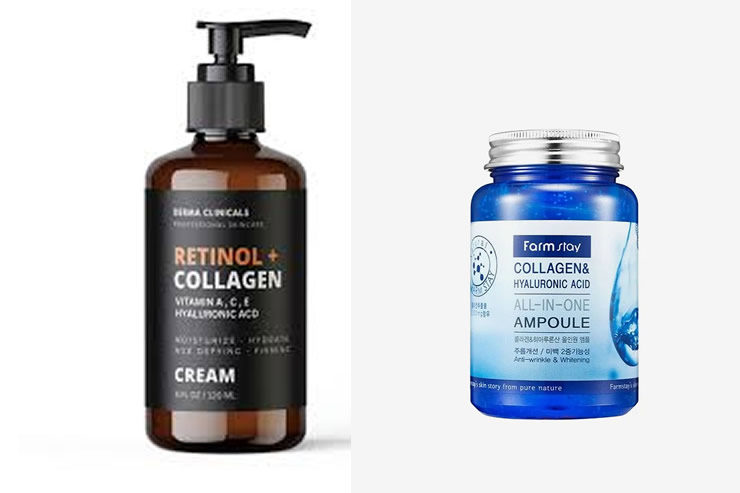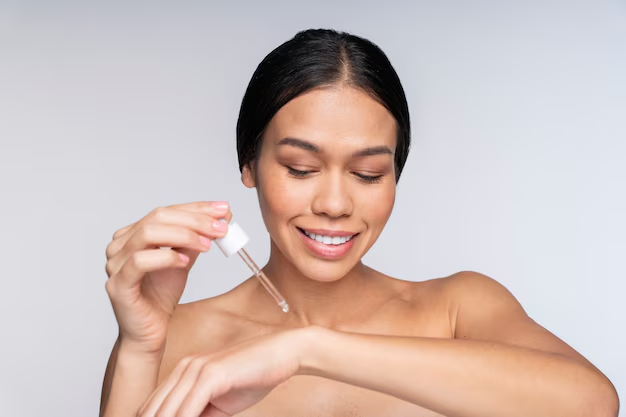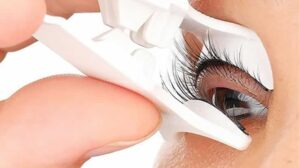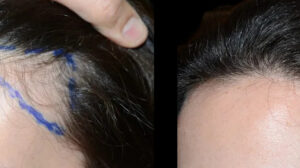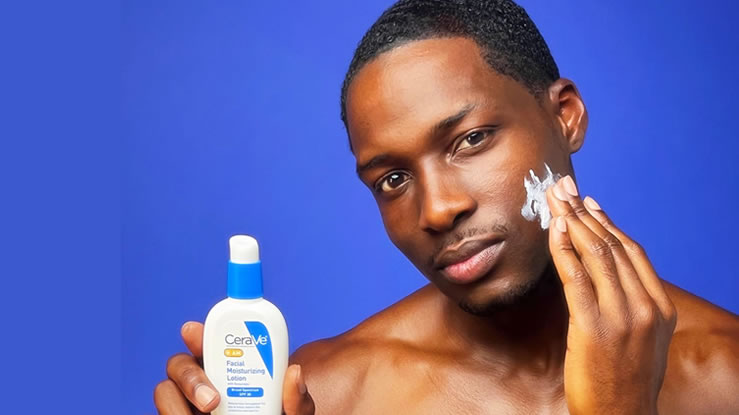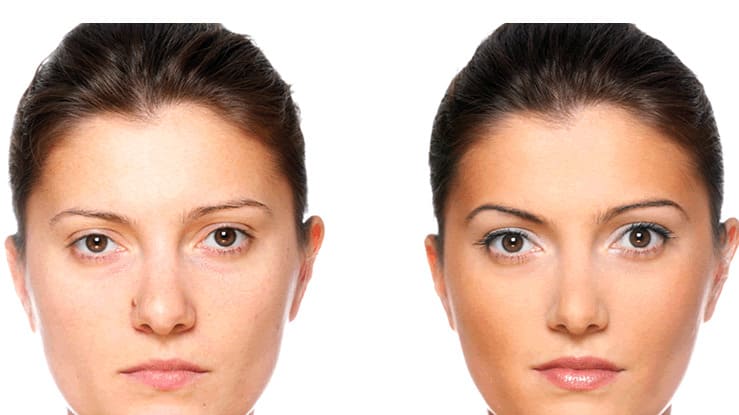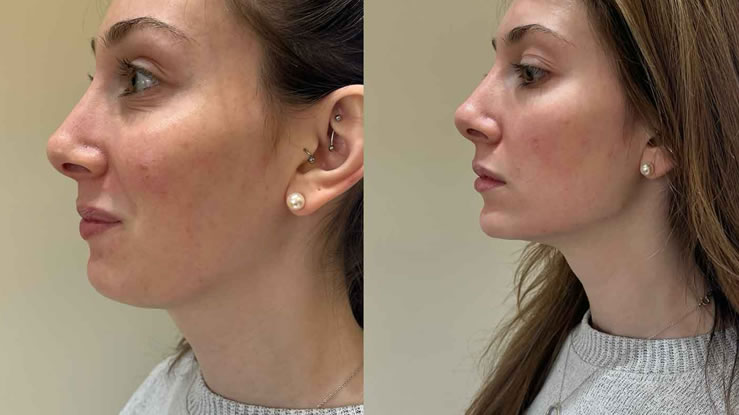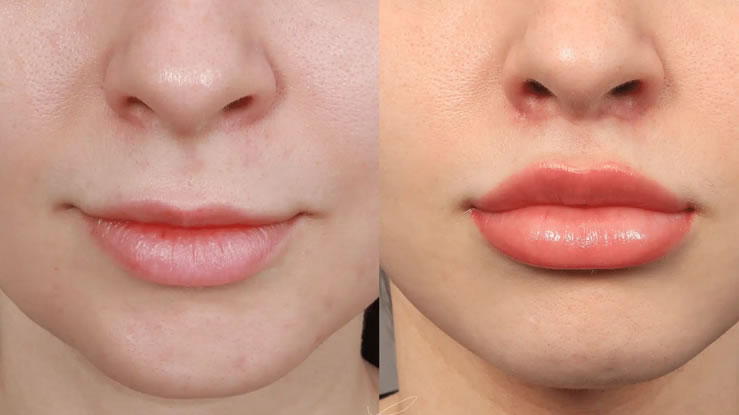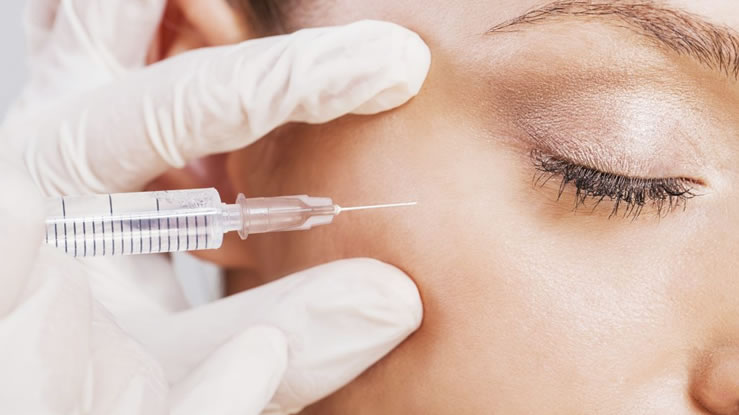The world of skincare can often feel like navigating an endless maze of products and ingredients. Retinol, collagen, and hyaluronic acid are among the most popular and effective ingredients in modern skincare routines. Each offers unique benefits for the skin, and when used correctly, they can work synergistically to deliver transformative results.
But can you use them together? The answer is a resounding yes, provided you use them properly. In this comprehensive guide, we will explore:
- What these ingredients are and how they work
- The benefits and potential risks of combining them
- How to create a routine incorporating all three
- Expert tips for getting the most out of this powerhouse trio
What Are Retinol, Collagen, and Hyaluronic Acid?
1. Retinol: The Gold Standard of Anti-Aging
Retinol, a derivative of vitamin A, is one of the most researched and effective skincare ingredients. It accelerates cell turnover, promotes collagen production, and addresses a range of skin concerns, from acne to fine lines and hyperpigmentation.
How Retinol Works:
Retinol stimulates the production of new skin cells and enhances the skin’s natural renewal process. It also boosts collagen and elastin levels, which are essential for maintaining firm and youthful skin.
Key Benefits of Retinol:
- Reduces fine lines and wrinkles
- Improves skin tone and texture
- Minimizes the appearance of pores
- Helps treat acne and fade dark spots
Potential Side Effects:
- Can cause redness, dryness, and irritation, especially in sensitive skin or when first introduced.
- Requires careful sun protection, as it can increase skin sensitivity to UV rays.
2. Collagen: The Skin’s Structural Protein
Collagen is the primary protein that gives skin its structure, strength, and elasticity. However, collagen levels naturally decline with age, leading to sagging skin, wrinkles, and loss of firmness.
How Collagen Works:
While collagen in topical skincare cannot directly replace lost collagen in the skin due to its large molecular size, it acts as an excellent moisturizer and supports the skin barrier. Additionally, some collagen products contain peptides that may stimulate the skin’s natural collagen production.
Key Benefits of Collagen:
- Hydrates and plumps the skin
- Enhances skin elasticity
- Supports the skin’s moisture barrier
Potential Drawbacks:
- Topical collagen may not penetrate deeply into the skin.
- Benefits are often more hydration-focused than structural.
3. Hyaluronic Acid: The Ultimate Hydrator
Hyaluronic acid is a naturally occurring molecule in the skin that holds up to 1,000 times its weight in water. It’s a humectant, meaning it draws moisture from the environment into the skin, making it essential for hydration.
How Hyaluronic Acid Works:
By attracting and retaining water, hyaluronic acid keeps the skin hydrated and plump. This makes it particularly beneficial for combating dryness and fine lines caused by dehydration.
Key Benefits of Hyaluronic Acid:
- Provides intense hydration
- Reduces the appearance of fine lines and wrinkles
- Works well with nearly all skin types and ingredients
Potential Risks:
- Overuse in extremely dry climates may lead to reverse osmosis, where the skin loses moisture.
Why Use Retinol, Collagen, and Hyaluronic Acid Together?
Using retinol, collagen, and hyaluronic acid together can address multiple skin concerns simultaneously:
- Retinol stimulates cell turnover and collagen production.
- Collagen provides hydration and supports skin elasticity.
- Hyaluronic acid replenishes moisture and soothes the skin.
This combination ensures that your skin stays hydrated and resilient while reaping the anti-aging and skin-renewing benefits of retinol.
How to Incorporate These Ingredients Into Your Routine
Morning Routine
Your morning skincare routine should focus on hydration and protection.
- Cleanser: Use a gentle, hydrating cleanser to remove impurities.
- Hyaluronic Acid Serum: Apply to damp skin to lock in moisture.
- Collagen Serum or Cream: Layer a collagen product to enhance hydration and plumpness.
- Moisturizer: Use a lightweight moisturizer to seal in hydration.
- Sunscreen: Apply a broad-spectrum SPF 30 or higher to protect your skin.
Evening Routine
Your evening routine is where the heavy lifting happens, thanks to retinol.
- Cleanser: Use a gentle cleanser to remove makeup and impurities.
- Retinol: Apply a pea-sized amount of retinol to clean, dry skin.
- Hyaluronic Acid Serum: Layer on top of retinol to hydrate and soothe the skin.
- Collagen Cream or Serum: Finish with a collagen product to lock in moisture and support skin elasticity.
Tips for Using Retinol, Collagen, and Hyaluronic Acid Together
- Start Slow: If you’re new to retinol, start with a low concentration (e.g., 0.25%) and use it 2-3 times per week. Gradually increase the frequency as your skin builds tolerance.
- Layer Correctly: Apply products from the thinnest to thickest consistency. Hyaluronic acid typically comes first, followed by retinol, and then collagen.
- Hydrate Generously: Use hyaluronic acid and collagen to combat any dryness caused by retinol.
- Use Sunscreen: Retinol makes the skin more sensitive to UV rays, so daily sun protection is non-negotiable.
- Patch Test: Before using new products, test them on a small area of skin to check for adverse reactions.
Benefits of Combining These Ingredients
- Enhanced Anti-Aging Effects: Retinol stimulates collagen production, while collagen and hyaluronic acid keep the skin plump and hydrated.
- Improved Hydration: Hyaluronic acid prevents the dryness often associated with retinol use.
- Comprehensive Skin Care: This trio addresses multiple concerns, from fine lines and wrinkles to hydration and elasticity.
Potential Risks and How to Avoid Them
- Irritation: Retinol can cause dryness or irritation, especially when used incorrectly. Always start with a low concentration and follow with hydrating products.
- Clogged Pores: Heavy collagen creams might clog pores in acne-prone skin. Opt for non-comedogenic formulas.
- Overloading Products: Using too many active ingredients at once can overwhelm your skin. Stick to a simple, balanced routine.
Recommended Products
Retinol
- The Ordinary Retinol 0.2% in Squalane
- RoC Retinol Correxion Deep Wrinkle Night Cream
- Paula’s Choice Clinical 1% Retinol Treatment
Collagen
- Elemis Pro-Collagen Marine Cream
- Algenist GENIUS Liquid Collagen
- Olay Regenerist Collagen Peptide 24
Hyaluronic Acid
- The Ordinary Hyaluronic Acid 2% + B5
- Neutrogena Hydro Boost Water Gel
- Drunk Elephant B-Hydra Intensive Hydration Serum
FAQs
1. Can I use retinol every night with collagen and hyaluronic acid?
Yes, but if you’re new to retinol, start by using it 2-3 times per week and increase the frequency gradually.
2. What order should I apply these ingredients?
Apply products from thinnest to thickest consistency: hyaluronic acid, retinol, and then collagen.
3. Can I use retinol and hyaluronic acid together?
Yes, hyaluronic acid helps hydrate the skin and minimizes irritation from retinol.
4. Is collagen effective when applied topically?
Collagen provides hydration and supports the skin barrier, but it doesn’t penetrate deeply enough to replace lost collagen in the skin.
5. Do I need sunscreen when using these ingredients?
Absolutely. Retinol increases skin sensitivity to UV rays, making daily sunscreen essential.
Retinol, collagen, and hyaluronic acid are a dream team in skincare when used correctly. Together, they address aging, hydration, and skin texture, delivering smoother, plumper, and healthier skin. By following a structured routine and understanding how to layer these ingredients, you can unlock their full potential and achieve glowing results.
Consistency, patience, and proper sun protection are the keys to reaping the benefits of this powerhouse trio. Let your journey to radiant skin begin!
Read Also;

